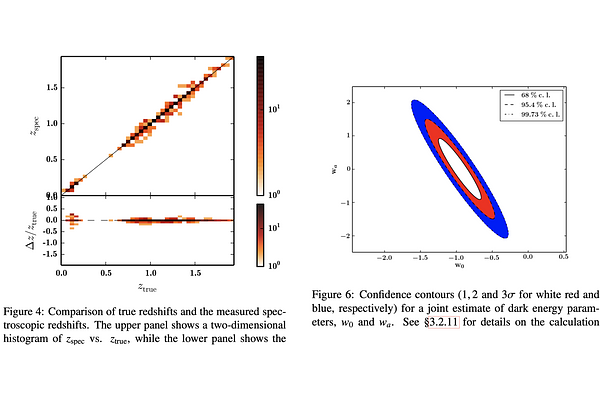SPOKES: an End-to-End Simulation Facility for Spectroscopic Cosmological Surveys

SPOKES: an End-to-End Simulation Facility for Spectroscopic Cosmological Surveys
B. Nord, A. Amara, A. Refregier, La. Gamper, Lu. Gamper, B. Hambrecht, C. Chang, J. E. Forero-Romero, S. Serrano, C. Cunha, O. Coles, A. Nicola, M. Busha, A. Bauer, W. Saunders, S. Jouvel, D. Kirk, R. Wechsler
AbstractThe nature of dark matter, dark energy and large-scale gravity pose some of the most pressing questions in cosmology today. These fundamental questions require highly precise measurements, and a number of wide-field spectroscopic survey instruments are being designed to meet this requirement. A key component in these experiments is the development of a simulation tool to forecast science performance, define requirement flow-downs, optimize implementation, demonstrate feasibility, and prepare for exploitation. We present SPOKES (SPectrOscopic KEn Simulation), an end-to-end simulation facility for spectroscopic cosmological surveys designed to address this challenge. SPOKES is based on an integrated infrastructure, modular function organization, coherent data handling and fast data access. These key features allow reproducibility of pipeline runs, enable ease of use and provide flexibility to update functions within the pipeline. The cyclic nature of the pipeline offers the possibility to make the science output an efficient measure for design optimization and feasibility testing. We present the architecture, first science, and computational performance results of the simulation pipeline. The framework is general, but for the benchmark tests, we use the Dark Energy Spectrometer (DESpec), one of the early concepts for the upcoming project, the Dark Energy Spectroscopic Instrument (DESI). We discuss how the SPOKES framework enables a rigorous process to optimize and exploit spectroscopic survey experiments in order to derive high-precision cosmological measurements optimally.
1 comment
scicastboard
- In the SPOKES simulation pipeline, how have you addressed the issue of scalability and parallelization, given the increasing availability of high-performance computing resources and more complex cosmological simulations? What improvements could be made to take advantage of these resources for more efficient and faster simulations?
- Since the publication of this paper, there have been advances in machine learning and artificial intelligence that have the potential to improve the efficiency and accuracy of cosmological simulations. How could these newer methods be incorporated into the SPOKES pipeline, and what impact might they have on addressing the challenges and requirements outlined in your paper?
ScienceCast Board of Experts